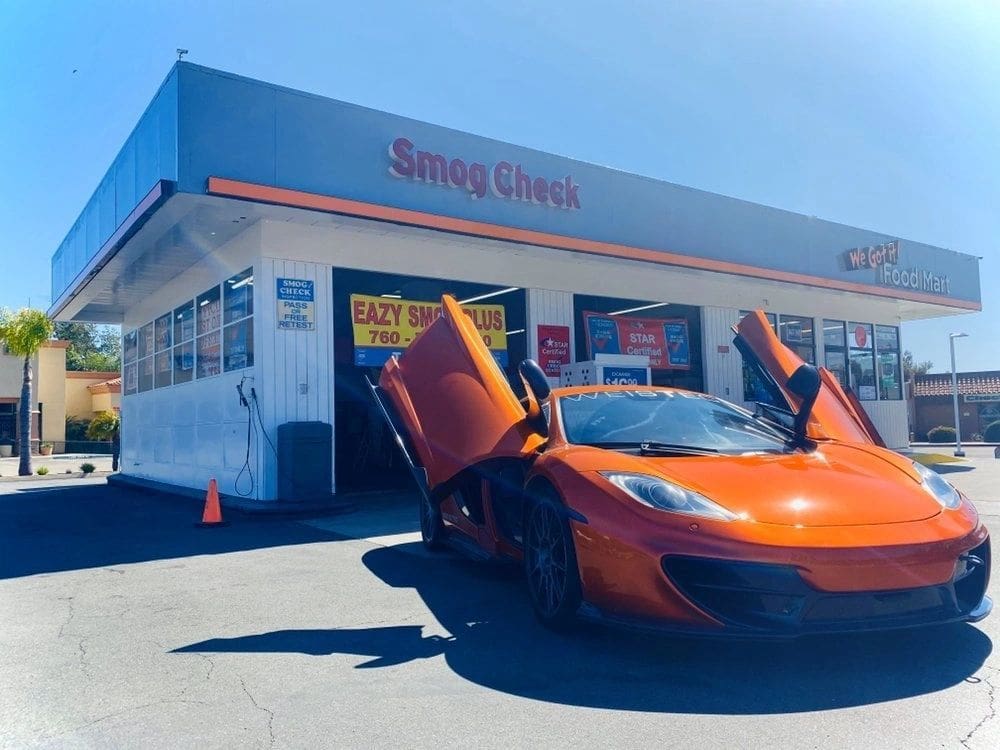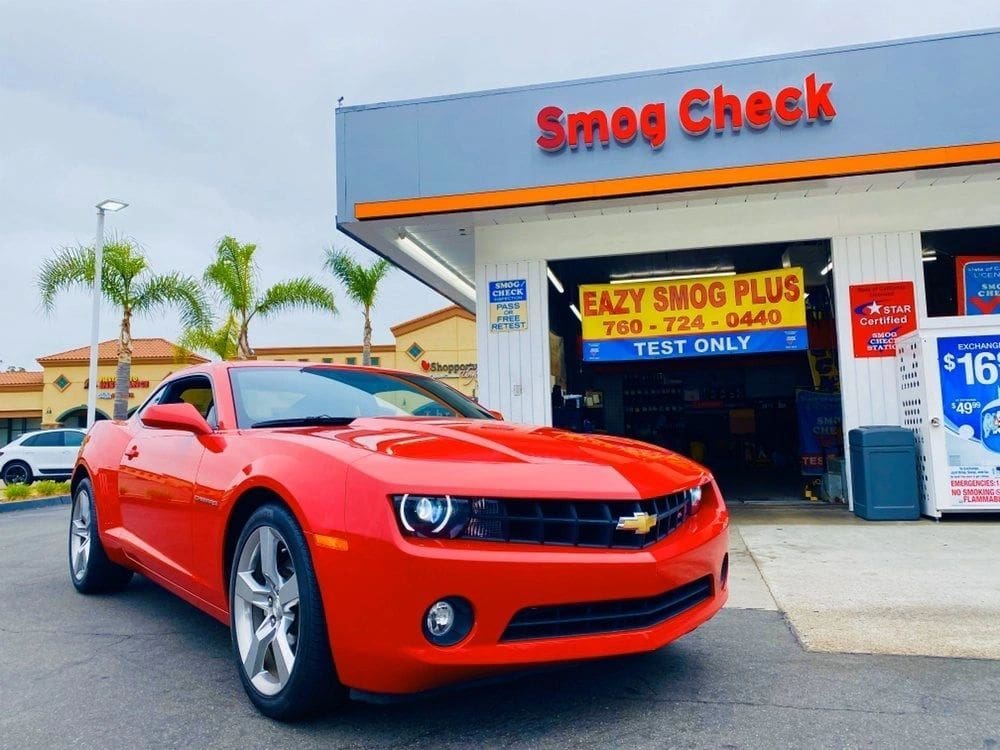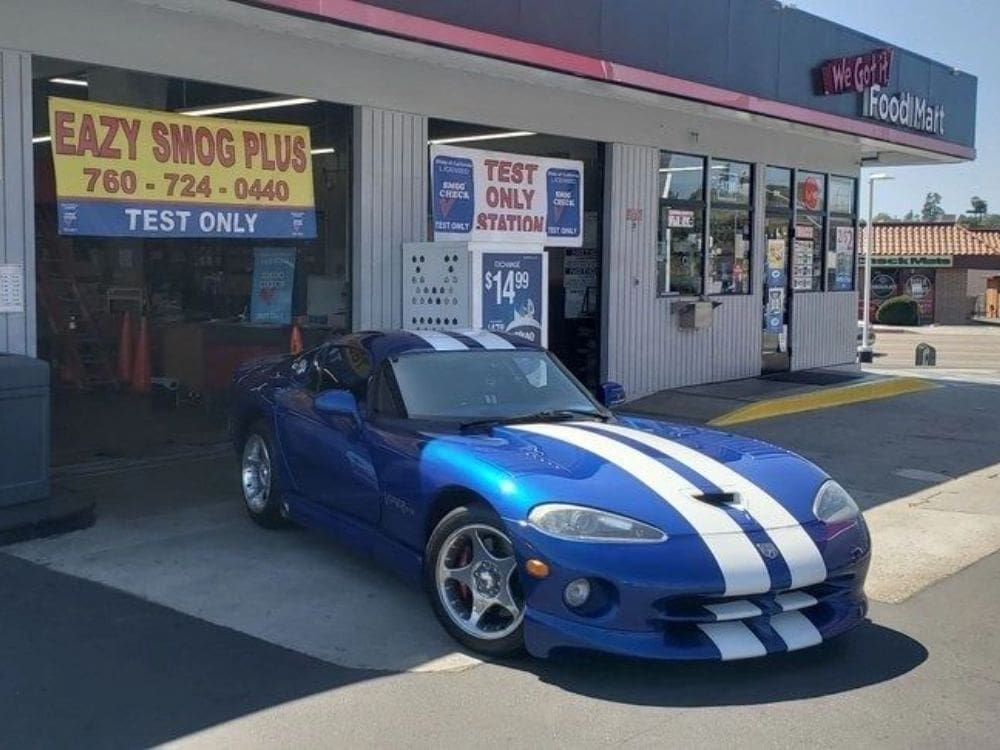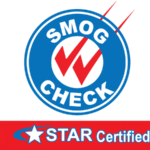


Frequently Asked Questions
A smog check, also known as a vehicle emissions test, is a procedure performed to measure the pollutants emitted from a vehicle's engine exhaust. In California, smog checks are required by law to ensure that vehicles meet emissions standards set by the state's Air Resources Board (ARB). The primary pollutants measured during a smog check include hydrocarbons (HC), carbon monoxide (CO), oxides of nitrogen (NOx), and particulate matter.
During a smog check, a certified technician will connect specialized equipment to the vehicle's onboard diagnostic (OBD) system, if applicable, and conduct various tests to assess the emissions output. These tests may include a tailpipe emissions inspection, a visual inspection of emissions-related components, and an OBD system check for newer vehicles equipped with such technology.
The purpose of a smog check is to identify vehicles that emit excessive pollutants beyond allowable limits and to ensure compliance with environmental regulations. Vehicles that pass the smog check are considered roadworthy and eligible for registration, while those that fail may require repairs and retesting to meet emissions standards.
In California, most vehicles are required to undergo a smog check every two years. The vehicles subject to this requirement include:
- Gasoline-powered vehicles: This category covers cars, trucks, SUVs, vans, and motorhomes that are in the 1976 and newer model years.
- Hybrid vehicles: Hybrid vehicles are also subject to smog check requirements, regardless of fuel type.
- Diesel-powered vehicles: Diesel vehicles that are model year 1998 and newer with a gross vehicle weight rating (GVWR) of 14,000 pounds or less must undergo smog checks.
- Natural gas-powered vehicles: These vehicles, including those running on compressed natural gas (CNG) or liquefied natural gas (LNG), are subject to smog check requirements.
- Flex-fuel vehicles: Vehicles capable of running on both gasoline and an alternative fuel, such as ethanol (E85), are also required to undergo smog checks.
- Out-of-state vehicles: Vehicles brought into California from another state or country are subject to smog check requirements if they are required to be registered in California.
However, there are certain exemptions from smog check requirements in California. For example, brand-new vehicles are typically exempt from smog checks for their first six years. Additionally, electric vehicles and motorcycles are exempt from traditional smog check requirements, though they may be subject to other forms of emissions testing. It's important for vehicle owners to understand the specific requirements based on their vehicle type and circumstances.
In California, the frequency of smog check requirements varies depending on several factors, including the vehicle's age, type, and location. Here's a general guideline:
- Biennial Smog Checks: Most gasoline-powered vehicles in California are subject to biennial smog checks, meaning they need to be tested every two years. This includes cars, trucks, SUVs, vans, and motorhomes that are in the model year 1976 and newer.
- Change of Ownership Smog Checks: When a vehicle is sold or transferred to a new owner, it typically requires a smog check, regardless of whether it has been tested recently. This ensures that the vehicle meets emissions standards before being registered under the new owner's name.
- Initial Registration: When registering a vehicle for the first time in California, a smog check may be required, depending on its type and model year.
- Out-of-State Vehicles: Vehicles brought into California from another state or country may require a smog check when being registered in California.
- Exemptions and Exceptions: Some vehicles are exempt from smog check requirements, such as brand-new vehicles (usually exempt for their first six years), electric vehicles, motorcycles, and certain other categories.
It's essential for vehicle owners to check the specific requirements based on their vehicle type and circumstances. The California Department of Motor Vehicles (DMV) or local smog check stations can provide information tailored to individual situations.
If your car fails the smog check in California, several steps typically follow:
- Receive a Vehicle Inspection Report (VIR): The technician conducting the smog check will provide you with a Vehicle Inspection Report (VIR) detailing the reasons for the failure and the emissions levels measured during the test.
- Determine the Reason for Failure: The VIR will specify which emissions exceeded allowable limits or whether the vehicle failed due to a malfunction indicator light (MIL) being illuminated or other issues.
- Diagnostic and Repair: You'll need to take your vehicle to an automotive repair facility to diagnose and repair the issues identified in the smog check. This might involve repairing or replacing faulty components, tuning the engine, or addressing any other issues contributing to the emissions problem.
- Retest: After the repairs have been made, you'll need to return to a licensed smog check station to have your vehicle retested. Some stations may offer free or discounted retests within a certain time frame.
- Passing the Smog Check: If your vehicle passes the smog check during the retest, you'll be provided with a new Certificate of Compliance or Certificate of Vehicle Inspection. This document is necessary to register your vehicle with the Department of Motor Vehicles (DMV).
- DMV Registration: With a passing smog check certificate, you can then proceed with registering your vehicle with the DMV or renewing your registration if it is due.
It's important to address smog check failures promptly, as driving a vehicle without a valid smog check certificate or registration can result in fines or other penalties. Additionally, delaying repairs could lead to further deterioration of your vehicle's emissions system and potentially more expensive repairs down the line.
Yes, it's possible to obtain a waiver if your car fails the smog check in California under certain circumstances. There are two types of waivers available:
- Repair Cost Waiver: If you've spent a certain amount of money attempting to repair the emissions-related issue on your vehicle and it still fails the smog check, you may qualify for a repair cost waiver. This waiver exempts you from further repair efforts, and you can still register your vehicle with the Department of Motor Vehicles (DMV) for a specified period, usually two years. To qualify for this waiver, you must meet specific criteria, including spending a minimum amount on qualifying emissions-related repairs and providing documentation of those repairs.
- Gross Polluter Waiver: In some cases, if your vehicle fails the smog check due to excessively high emissions levels, you may be eligible for a gross polluter waiver. This waiver allows you to register your vehicle with the DMV despite failing the smog check. However, this waiver is typically more difficult to obtain and may require demonstrating that further repairs would be uneconomical or impractical.
It's essential to check with the California Bureau of Automotive Repair (BAR) or your local smog check station for specific eligibility requirements and procedures for obtaining a waiver. Keep in mind that waivers are not guaranteed, and it's generally advisable to address emissions issues promptly to ensure compliance with state regulations and maintain the efficiency and environmental performance of your vehicle.
The cost of a smog check in California can vary depending on several factors, including the location of the smog check station, the type of vehicle being tested, and any additional services provided. However, as of my last update, here's a general overview of the typical costs associated with a smog check:
- Basic Smog Check: The cost of a standard smog check for most gasoline-powered vehicles ranges from $30 to $80. This price usually covers the emissions test and the issuance of a certificate if the vehicle passes.
- STAR Smog Check: If your vehicle is directed to a STAR smog check station based on certain criteria, such as its emissions history or location, the cost may be slightly higher, typically ranging from $50 to $100.
- Additional Fees: Some smog check stations may charge additional fees for services such as the electronic transmission of test results to the Department of Motor Vehicles (DMV) or certificate issuance. These fees can vary but are generally minimal, ranging from $8 to $20.
- Repair and Retest: If your vehicle fails the initial smog check and requires repairs before retesting, you'll incur additional costs for parts and labor at an automotive repair facility. The cost of repairs can vary widely depending on the extent of the emissions-related issues and the specific repairs needed.
Overall, while the cost of a smog check can vary, it's essential to budget for this expense as part of owning a vehicle in California, where smog checks are required for most vehicles to register or renew registration with the DMV. Additionally, it's wise to compare prices and services offered by different smog check stations to ensure you're getting the best value for your money.
When going for a smog check appointment in California, it's essential to bring the following items to ensure a smooth and efficient process:
- Vehicle Registration: Bring your vehicle's current registration documents. The smog check station will need to verify that your vehicle is due for a smog check and obtain the necessary information from the registration.
- Payment: Be prepared to pay for the smog check service. The cost can vary depending on the type of vehicle and the smog check station, so it's a good idea to inquire about the fee beforehand or have the estimated amount ready.
- Identification: While it's not always necessary, it's a good idea to bring a form of identification, such as a driver's license or state ID. Some smog check stations may ask for identification to confirm your identity and match it with the vehicle registration.
- Vehicle Keys: You may need to leave your vehicle keys with the technician during the smog check, especially if the check involves accessing the vehicle's onboard diagnostic (OBD) system or conducting other diagnostic tests.
- Check Engine Light Status: If your vehicle's check engine light is currently illuminated, it's important to address the underlying issue before the smog check appointment. Some smog check stations may refuse to perform the test if the check engine light is on, as it could indicate emissions-related problems.
- Special Circumstances Documentation: If your vehicle falls under any special circumstances, such as being recently purchased, out-of-state registered, or having previously failed smog checks, bring any relevant documentation or paperwork that may be required for the smog check process.
By ensuring you have these items ready before your smog check appointment, you can help expedite the process and avoid any potential delays or complications.
In California, electric vehicles (EVs) and certain hybrid vehicles are generally exempt from traditional smog check requirements. However, it's essential to note some nuances:
- Electric Vehicles (EVs): Pure electric vehicles, which do not have internal combustion engines, are typically exempt from smog check requirements. Since they produce zero tailpipe emissions, they do not undergo the same emissions testing as traditional gasoline or diesel-powered vehicles.
- Plug-in Hybrid Electric Vehicles (PHEVs): Plug-in hybrid electric vehicles, which combine an internal combustion engine with an electric motor and battery, may be subject to smog check requirements. However, they often have lower emissions and may qualify for exemptions or reduced testing frequency compared to conventional gasoline vehicles.
- Traditional Hybrid Vehicles: Conventional hybrid vehicles, such as those powered by a gasoline engine and supplemented by an electric motor, are subject to smog check requirements like other gasoline-powered vehicles. However, their emissions tend to be lower than their non-hybrid counterparts, which may affect the frequency of testing or eligibility for certain exemptions.
It's important for owners of hybrid vehicles to check with the California Department of Motor Vehicles (DMV) or local smog check authorities to understand the specific requirements and exemptions applicable to their vehicle type. Additionally, regulations and exemptions may vary by location and could change over time as emissions standards and technologies evolve.

